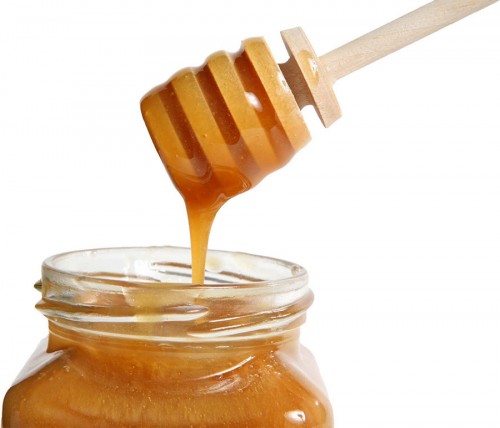Night Time Cough Remedy – Honey the Best
Many parents (and some physicians) were a bit surprised several years ago when some researchers did a study on the treatment of night-time cough in children who had “colds” (upper respiratory infections caused by a virus) and found that standard medicines (for which we pay good $) didn’t work as well as supermarket honey.
Honey is best for cough
Now a medical group from Israel has confirmed the findings over there as well, according to the medical journal Pediatrics. (2012;130:465-471)
Honey Best For Children’s Cough
The researchers tried several of the well accepted over-the-counter cough medications sold for treating children, and just for good measure threw in a couple of “old fashioned” remedies to boot. And the Buckwheat honey won!
Even when I was back in medical school our professor told us that “the best cough medicine for everyone is – water” (I suspect that he didn’t know our city water). And, there are those who believe that a tablespoon of honey from the local area you are living in is a good treatment for allergies.
In 2008 the FDA pulled all over-the-counter cold remedies sold for children under two off of the store shelves. The reason? There was little evidence that they helped children under six with their cough symptoms and there are substantial health risks when those ingredients are taken by infants and children under two.
So what are parents supposed to do when a child is up at night coughing? That was when the first study I mentioned about honey came in. Those doctors used the extra dark and flavorful Buckwheat Honey (mostly found in the central states) on children two and older, found it to be effective and began advising physicians to recommend it for their patients. That’s when I switched.
Now Dr’s Cohen, Rozen, Kristal H and others over in Israel have done a slightly different study which confirms the first. Only they used three different varieties of honey as well as a “placebo” of sorts made out of pureed dates to match the sweetness and color. The study was “double-blind” – meaning that neither the doctor or the patient knew which concoction they were getting; “Randomized” – meaning they used some kind of random computer to assign which patient got which stuff; and, “Placebo-controlled” – meaning one of the treatment groups got a substance that wasn’t supposed to work but looked like the others.
Three hundred children between one (more about that age later) and five who were seen in one of six participating clinics and who had standard, run-of-the-mill “colds” were entered into the study, given their secret “medicine” and sent home for observation. The next day a nurse from the clinic called to see how the night cough had gone and recorded the results for comparison.
Now I would have bet money that all of the sweet stuff worked the same; but, no-suree-Bob ALL of the honeys beat the placebo by at least 30 percent compared to the nights prior. So, they are recommending that honey can be used as a safe and effective cough suppressant for children one year of age and older.
THERE IS A DIFFERENT RECCOMENDATION GIVEN BY DOCTORS IN THE US HOWEVER. We still recommend honey be used BUT the American Academy of Pediatrics (AAP) DOES NOT recommend honey be used in children under TWO years of age due to the increased risk of botulism in that age group. Nearly all honey has microscopic spores of things like Botulism in it – that’s why you need to follow canning instructions so precisely to prevent the disease. However, the immature intestinal membranes and immune system of infants are more susceptible.
The AAP provides some parent guidelines on the subject should you be interested:
Honey The Best
Honey can be fed safely to children over age 1, according to the AAP Nutrition Handbook. The AAP does not recommend giving honey to infants under 12 months of age because it could contain a bacterium that causes infant botulism.
The AAP advises starting with 1/2 to 1 teaspoon as needed. If honey is not available, corn syrup may be tried.
Saline solution
Saline solution offers a way to keep the tiniest noses clear. Babies can benefit from nasal washes prior to nursing or bottle feeding. Make saline solution by combining ½ teaspoon of table salt per 1 cup of warm tap water. Put two to three drops in the nostril and use a bulb syringe to suction it out. Older children also can gargle saline solution to ease sore throats.
Vapor rubs
For children older than age 2, topical vapor rubs can help ease chest and nose congestion. A 2010 study found that vapor rub containing camphor, menthol and eucalyptus oils relieves symptoms and aids sleep in children with colds. Rubs never should be given by mouth or rubbed under the nose. Follow instructions on the label and rub on the chest.
Contact Physician
Consult your pediatrician if your child’s symptoms last longer than a week, he or she has a mild fever for more than two to three days (call the pediatrician right away if your infant under 2 months has a fever), your child has severe ear pain that does not go away or has a sore throat accompanied by fever and swollen neck.

